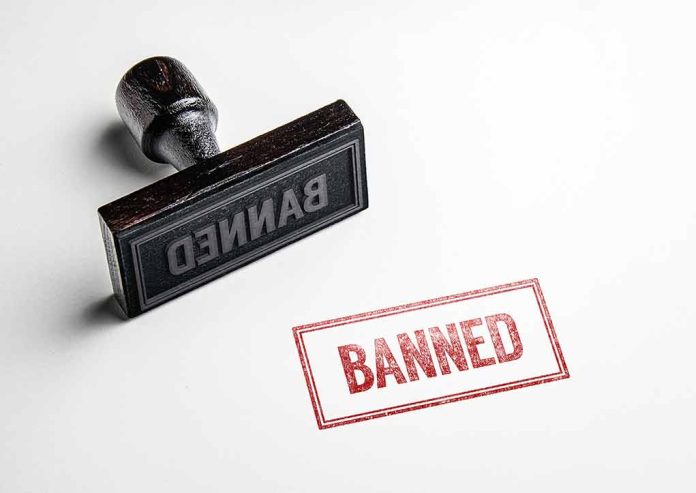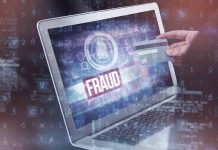
TikTok’s battle for survival in the U.S. reaches the Supreme Court as the popular app faces a potential ban over national security concerns.
At a Glance
- TikTok requests Supreme Court intervention to block a law that could ban the app in the U.S.
- The law requires ByteDance, TikTok’s Chinese owner, to sell or face a ban, citing national security concerns
- TikTok argues the law violates First Amendment rights to free speech
- The ban is set to take effect on January 19, unless the Supreme Court intervenes
- The case pits free speech concerns against national security interests
TikTok’s Legal Challenge
TikTok, the popular video-sharing app with 170 million American users, has taken its fight against a potential U.S. ban to the Supreme Court. The company is seeking to block the Protecting Americans from Foreign Adversary Controlled Applications Act, which requires ByteDance, TikTok’s Chinese parent company, to sell the platform to an American company or face a ban. This law, part of an aid package signed by President Biden, is set to take effect on January 19, 2025, unless the Supreme Court intervenes.
TikTok’s lawyers argue that the law infringes on First Amendment rights, potentially silencing millions of American users. The company’s legal team has emphasized the urgency of the situation, stating, “The Act will shutter one of America’s most popular speech platforms the day before a presidential inauguration.”
Statement on Supreme Court Order to Hear TikTok Ban Case
We're pleased with today's Supreme Court order. We believe the Court will find the TikTok ban unconstitutional so the over 170 million Americans on our platform can continue to exercise their free speech rights.
— TikTok Policy (@TikTokPolicy) December 18, 2024
National Security Concerns
The federal government defends the law on national security grounds, citing concerns about Chinese government influence over the app. The U.S. Court of Appeals for the District of Columbia Circuit previously upheld the law, acknowledging First Amendment implications but ultimately citing national security justifications. The court pointed to concerns about data collection and content manipulation by China as compelling national security interests.
“The petitioners have not identified any case in which a court, after rejecting a constitutional challenge to an Act of Congress, has enjoined the Act from going into effect while review is sought in the Supreme Court” – D.C. Court of Appeals
If the ban takes effect, Apple and Google may be required to remove TikTok from their app stores. The Justice Department would be responsible for enforcing the law by investigating and sanctioning violators. This could result in significant fines for app stores and internet services supporting TikTok.
The Supreme Court on Wednesday said it will take up a challenge to a new law that could lead to a ban on TikTok in the U.S, setting up a showdown over access to a widely popular app used by tens of millions of Americans. https://t.co/Lu9mz29Aqa
— Face The Nation (@FaceTheNation) December 18, 2024
Impact on Users and Content Creators
The potential ban has raised concerns among TikTok users and content creators who rely on the platform for income and expression. A group of content creators has filed a similar request to block the law, arguing that a ban would be “devastating to their livelihoods, their communities, and their ability to express themselves and hear the ideas of their choosing.” TikTok warns that a shutdown could result in losing a third of its U.S. daily users and significant advertising revenue.
“A modest delay in enforcing the Act will create breathing room for this Court to conduct an orderly review and the new Administration to evaluate this matter — before this vital channel for Americans to communicate with their fellow citizens and the world is closed.” – lawyers for TikTok and ByteDance
Civil liberties groups have voiced support for TikTok’s legal challenge on free speech grounds. The case has drawn attention to the broader implications for digital rights and government intervention in social media platforms.
Next Steps and Potential Outcomes
The Supreme Court is set to hear arguments on January 10, 2025, in the case of TikTok v. Garland. The request for an emergency order is initially directed to Chief Justice John Roberts, who may consult other justices. TikTok’s lawyers are seeking a ruling on the emergency request by January 6 to allow time for a potential shutdown in the U.S. if the appeal is rejected.
The outcome of this case could have far-reaching consequences for the tech industry and the balance between national security interests and free speech rights in the digital age. As the deadline approaches, all eyes will be on the Supreme Court to see how it navigates this complex and high-stakes legal battle.
Sources:
- Updated: Supreme Court to decide TikTok’s fate
- TikTok calls on Supreme Court to issue emergency order to block potential US ban of popular app
- TikTok asks Supreme Court to block law that could ban popular app














